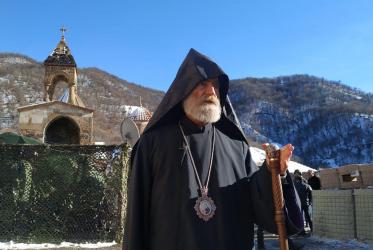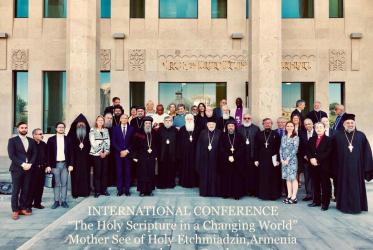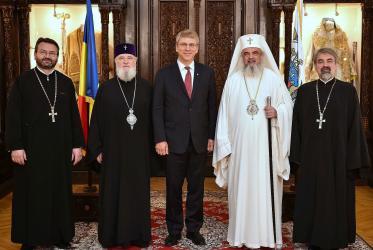Displaying 1 - 10 of 10
WCC well-represented in Religions for Peace leadership
07 October 2019
Peacemakers at work in Sri Lanka
29 April 2019
Romani people seek “lives of decency, dignity, and justice”
27 September 2018
WCC urges responsibility for and support to the refugees in Europe
04 September 2015








